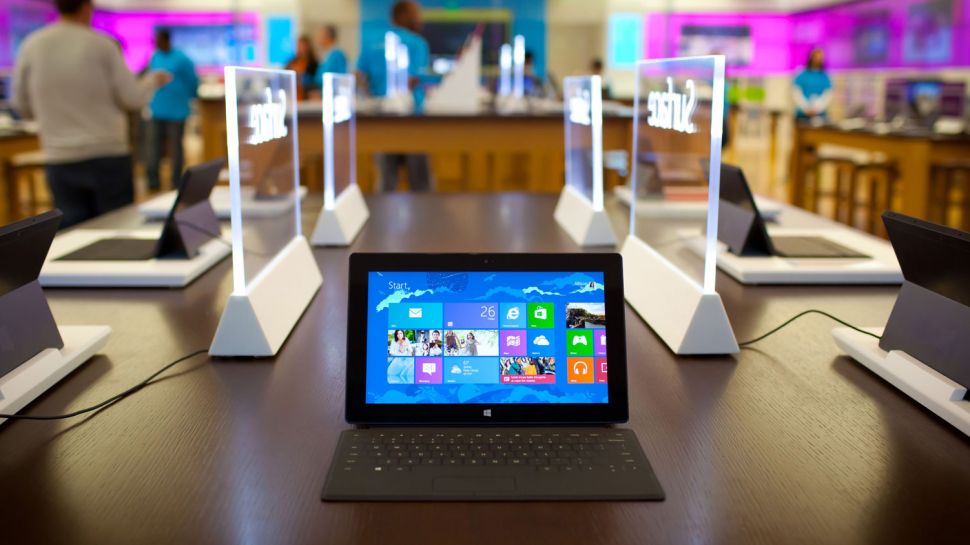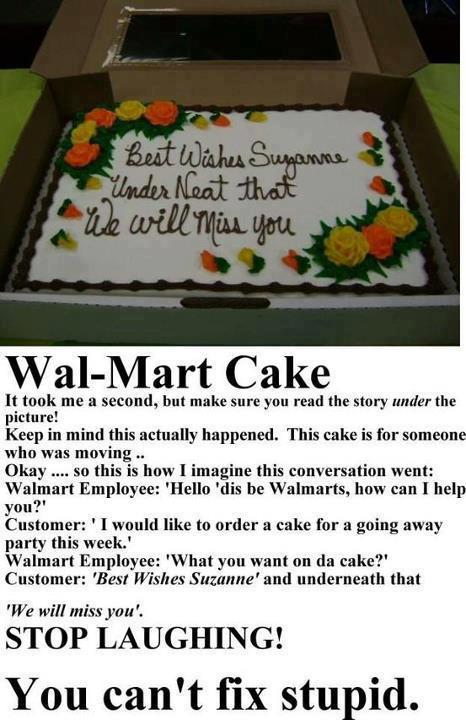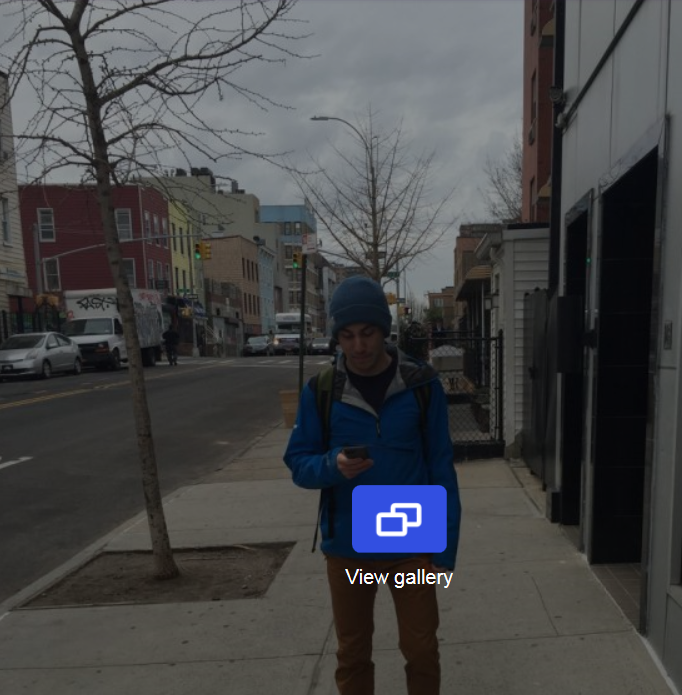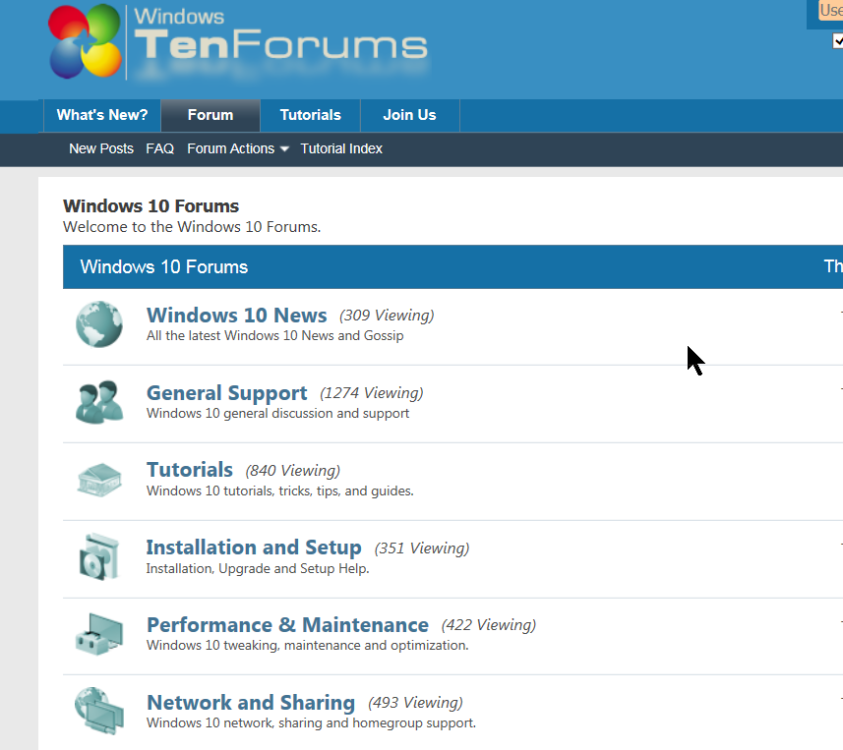-
Posts
7,282 -
Joined
-
Last visited
-
Days Won
2,416
Content Type
Forums
Blogs
Events
Resources
Downloads
Gallery
Store
Everything posted by allheart55 Cindy E
-
The upgrade has to be from Windows 7 SP1 or Windows 8.1. A lot of people feel that the difference between 8 and 8.1 is really just a service pack. I don't know why MS chose to call it 8.1 instead of 8 SP1.
-
Yeah, Windows 10 won't upgrade from Windows 8.
-
I always use the media creation tool. I've had no problems with it. https://www.microsoft.com/en-us/software-download/windows10
-
It's always best to have a back up image and I believe that Peter said he has a Macrium image file on a flash drive. Although not the safest of media is better than not having an image at all.
-
I was thinking that Dougie's new build is so unusual that it deserves a separate thread. I am looking forward to seeing his step by step pictures.
-
2016 is proving to be the year of privacy debates between the tech world and the US government. In the latest clash, Microsoft has sued the US Government over the right to tell its users when federal agencies request access to private data. Reuters reports that Microsoft has opened a suit against the policy of secret government data requests. The Redmond-based company alleges that Washington is violating the U.S. Constitution by preventing it from customers of government requests for emails and other documents stored on its remote servers. In the suit, Microsoft claims it has received 5,624 demands for customer information over the past 18 months. Of those requests, 2,576 supposedly came an attached gag order preventing the company from informing customers of the government seized data. What's more, Microsoft also says 1,752 orders came without a time limit, preventing it from ever telling customers that the government obtained their digital files. Legal document argues that the governments breaches US citizen's fourth amendment rights to know if the government searches or seizes their property. "People do not give up their rights when they move their private information from physical storage to the cloud," Microsoft wrote in the lawsuit. "[The government] has exploited the transition to cloud computing as a means of expanding its power to conduct secret investigations." This is the latest legal battle between the government and the tech world over digital civil liberties. Earlier this year the issue was first sparked by a FBI vs Apple case, revolving around the data locked in an encrypted iPhone 5C formally owned by shooters involved in the San Bernardino, California shooting massacre last December. Via BBC
-
If you think you’re evading the constantly tracking eye of the Internet by using throw-away email addresses and obscure screen names to register your social media accounts and other apps, you’re probably wrong. A new study demonstrates how simple it can be to correctly identify someone using otherwise anonymous data. Columbia University’s Data Science Center and Google teamed up for a recently published study [PDF], where researchers took a large data set from social media apps and stripped it of any names or other indicators that explicitly identify the user. “Almost every interaction with technology creates digital traces, from the cell tower used to route mobile calls to the vendor recording a credit card transaction; from the photographs we take, to the ‘status updates’ we post online,” reads the study. “The idea that these traces can all be merged and connected is both fascinating and unsettling.” The researchers in this study only used geolocation data — the information collected when you tag an Instagram photo with “Bob’s Bar” or post a Facebook update from a concert that your friends couldn’t get tickets to. Previous similar studies about anonymized data have shown that, for example, it only takes as few as four credit card purchases to accurately identify the shopper. But this new report claims that you may only need location data from two social media apps to figure out with a high degree of confidence who an otherwise anonymous user is. For the study, researchers cooked up an algorithm to compare geotagged Tweets with photos posted on Instagram or check-ins via Foursquare, with the intention of seeing if this data was sufficient to correctly identify users. They did something similar comparing location information for credit card purchases to cell tower pings. It’s not as simple as merely looking at a Foursquare check-in and a Tweet and immediately knowing who the person is. Researchers had to account for factors like the imbalance in data sets — many people post to Twitter more frequently than they post photos on Instagram or use Foursquare — and the very nature of the data being shared — a Tweet or a Foursquare checkin is more likely to involve something happening right at the time the data is shared, while an Instagram photo might be uploaded hours or even days after it’s taken. “Many people choose not to identify themselves online,” explains study author Augustin Chaintreau. “If I now tell you that your location data makes you recognizable across all of your accounts, how does that change your behavior? This is a question we now have to answer.” Chantreau gives BuzzFeed News a real-world example of how location data could be used to identify an anonymous user. “[O]n LinkedIn you are likely to use your real name … but maybe you are also using Tinder or some or other application which you would not want linked back to your real name,” he explains. “Using the data in what you have posted, those accounts could be linked, even if in one of them — say Tinder— you believed you were operating in ghost mode.” The study found that comparing the credit card purchases with cell tower pings provided an even more precise method of identifying an anonymous user. Adds co-author Chris Riederer, “People are now sharing their location on a growing number of apps, often without realizing it… Companies no longer have to be very sophisticated to access this data and use it for their own purposes.” Source: consumerist
-
I definitely agree with you, Bill.
-

Asus x401U laptop "disk read error"?
allheart55 Cindy E replied to mikehende's topic in Tech Help and Discussions
I would definitely want to make sure that the hard drive was functional before I went to the trouble of a operating system re-install. -

Asus x401U laptop "disk read error"?
allheart55 Cindy E replied to mikehende's topic in Tech Help and Discussions
There are you tube instructions for removing the hard drive, Mike. The x401a is the same as the x401u except for the ram placement. -

Asus x401U laptop "disk read error"?
allheart55 Cindy E replied to mikehende's topic in Tech Help and Discussions
Let us know what the results are. Have you tried the hard drive on another machine? -

Asus x401U laptop "disk read error"?
allheart55 Cindy E replied to mikehende's topic in Tech Help and Discussions
This most likely points to a faulty hard drive. Have you tested the drive on another machine? F9 should take you to the Asus Recovery. Have you tried pressing and holding the F9 key rather than tapping it? -
-
Absolutely! We are definitely interested. In fact, I think that this build deserves it's own thread.:thumbsup:
-
I think so too. :coolsun:
-
You've definitely got your work cut out for you, Dougie. :omg:
-
My adult children and my grandchildren always have their noses buried in their phones. I only pick up my phone to answer it or make a call myself. I rarely use my phone for accessing the internet or viewing social media. I guess it's a generational thing....
- 3 replies
-
- cellphone
- experiment
-
(and 2 more)
Tagged with:
-
A major tech company and the US government are at odds once again. Microsoft has filed a lawsuit against the Justice Department, claiming that it's "unconstitutional" to force the company to remain silent and not inform customers when their cloud data has been searched or inspected by authorities. "Microsoft brings this case because its customers have a right to know when the government obtains a warrant to read their emails, and because Microsoft has a right to tell them," the complaint, filed today in a Washington District Court. "As Microsoft’s customers increasingly store their most private and sensitive information in the cloud, the government increasingly seeks (and obtains) secrecy orders." In 2013, the company came out hard against the government following the Snowden disclosures of mass surveillance, though Microsoft itself got into hot water over email snooping two years ago. In today's complaint, Microsoft says that Section 2705(b) of the Electronic Communications Privacy Act "sweeps too broadly" and simply gives the government too much power in gagging companies as it pursues investigations and alleged criminal activity. And indeed, the numbers seem rather startling. "Over the past 18 months, federal courts have issued nearly 2,600 secrecy orders, silencing Microsoft from speaking about warrants and other legal process seeking Microsoft customers’ data. "Customers have a right to know when the government obtains a warrant to read their emails, and Microsoft has a right to tell them." Perhaps even more concerning is that over two-thirds of those orders "contained no fixed end date," at worst making them permanent, and at best giving Microsoft no clear idea of when it can be transparent with affected customers. In all, between September 2014 and last month Microsoft received 5,624 demands for customer "information or data" from the federal government. Here's straight from the filing: The vast majority of these secrecy orders related to consumer accounts and prevent Microsoft from telling affectedindividuals about the government’s intrusion into their personal affairs; others prevent Microsoft from telling business customers that the government has searched and seized the emails of individual employees of the customer. The company admits that there may be "exceptional circumstances" where barring cloud providers from notifying users about searches is justified — but Microsoft insists it needs to be temporary. More from Microsoft's filing: Under the statute, the assessment of adverse consequences need not be based on the specific facts of the investigation, and the assessment is made only at the time the government applies for the secrecy order, with no obligation on the government to later justify continued restraints on speech even if circumstances change because, for instance, the investigation is closed or the subject learns of it by other means. Microsoft wants the court to "declare that Section 2705(b) is unconstitutional on its face," a ruling that could dramatically shift power between the technology companies that hold our personal data and authorities that demand access to it. This latest public battle follows a high-profile face off between the FBI and Apple over where to draw the line on government requests to get inside encrypted iPhones. See Court Filing: Microsoft court filing Source: theverge
-
A few weeks ago I undertook a daring experiment: I went without my iPhone for seven whole days. It was a big deal for me. I'm 23, and I've been attached to a cellphone since shortly after I started walking. The first thing I noticed that phoneless week was just how many people stare at their phones all day. I never noticed that before because I was looking at my phone, too. The first morning I started my experiment was a Tuesday, so I joined the morning rush on the subway. I felt like an alien, staring straight ahead at a series of bent necks and earbuds. The sounds of "Candy Crush" — a popular phone game — filled the train car, and I couldn't even listen to music to drown it out. Once I arrived at my office, the elevator was the same story. As soon as the doors opened, all the screens came out. Out of sheer boredom, I tried to make small talk while waiting for the elevator. That's something I never do. Usually my phone is more interesting to me than other people. But perhaps most startling was the realization that so many people look at their phones while they are walking. The weekday New York sidewalks are almost like " an animated science fiction movie. It felt a little dangerous, with so many people paying so little attention to where they are walking, not to mention the traffic streaming by them. We're really distracted by our screens. Scientists agree. Jack Nasar, a professor emeritus at Ohio State University who studies phone use, found that people on their phones are 48% more likely to walk unsafely into oncoming traffic in a 2008 study, highlighted by NPR. from 2013, Nasar found that injuries to pedestrians on their phones more than doubled between 2004 and 2010, according to NPR. And in a 2015 study, Conrad Earnest, an exercise scientist at Texas A&M University, sent 30 people through a course designed to mimic city sidewalks and streets — both with their phones, and without. Earnest found that people who texted while walking moved more slowly and veered off their paths more than screen-free walkers. However, that didn't necessarily result in more accidents, according to NPR. So if I learned anything over my phoneless week, it's simply to look where I'm going when I'm walking. Besides, people-watching can be more fun than texting. NOW WATCH: Here's what happens to your brain when you check your phone — and why it's so addicting Source: yahoo
- 3 replies
-
- cellphone
- experiment
-
(and 2 more)
Tagged with:
-
-
Good Luck with it, Dougie! I can't wait to see it. You did an awesome job on the cylindrical build.:thumbsup:
-
Ten Forums is really just blue and white. (Or at least the default theme is.) I don't see the difference......
-
The geographic center of the United States, as all elementary school students know, is in Kansas. When some services that map a device’s Internet Protocol address don’t know where someone using a website is located, they point to the front yard of a farm in Kansas. The octogenarian owner and her tenants had no idea until recently why they were being harassed. Following up on a recent story about a couple who regularly find strangers at their door looking for missing smartphones, Fusion’s Kashmir Hill decided to look for more people who might have similar problems. It turns out that there are quite a few, but the farm is the worst of them all. The farm is a few hours’ drive from the point that’s the exact geographic center of the United States. Early last decade, a company called MaxMind was laying the foundation for what would become a location database for IP addresses. When their database doesn’t know where a user’s IP address is, it returns a latitude and longitude near the center of the country. They rounded the actual address, 39.8333333,-98.585522, to something shorter. Unfortunately, that nice and even address, 38.0000,-97.0000, is precisely in the farm’s front lawn. “At that time, we picked a latitude and longitude that was in the center of the country, and it didn’t occur to us that people would use the database to attempt to locate people down to a household level,” the company’s founder explained to Hill. “We have always advertised the database as determining the location down to a city or zip code level.” Instead, people read the “somewhere in the United States” address as “at this address in Kansas.” 600 million IP addresses point directly at their address, and it has led to everyone from ambulances to IRS agents on the property, looking for people who definitely don’t live there. For years, the owner and tenants have dealt with having their personal information released online, angry phone calls, and even a toilet dumped in the lawn. “Our deputies have been told this is an ongoing issue and the people who live there are nice, non-suicidal people,” the county sheriff said. The situation could become even worse if a nice person who were ill or even who had suicidal ideation moved in someday. First responders might not bother to come if the person’s friends or family contacted them if they know the history of the house. The good news is that now MaxMind knows about the effect their error has had on the people who live in the house, and they’ve changed the default point for the United States to the middle of a lake. It might take a while for that update to roll out to all of their clients, though. How an internet mapping glitch turned a random Kansas farm into a digital hell [Fusion]
-
- harassed
- internet protocol address
-
(and 3 more)
Tagged with:









